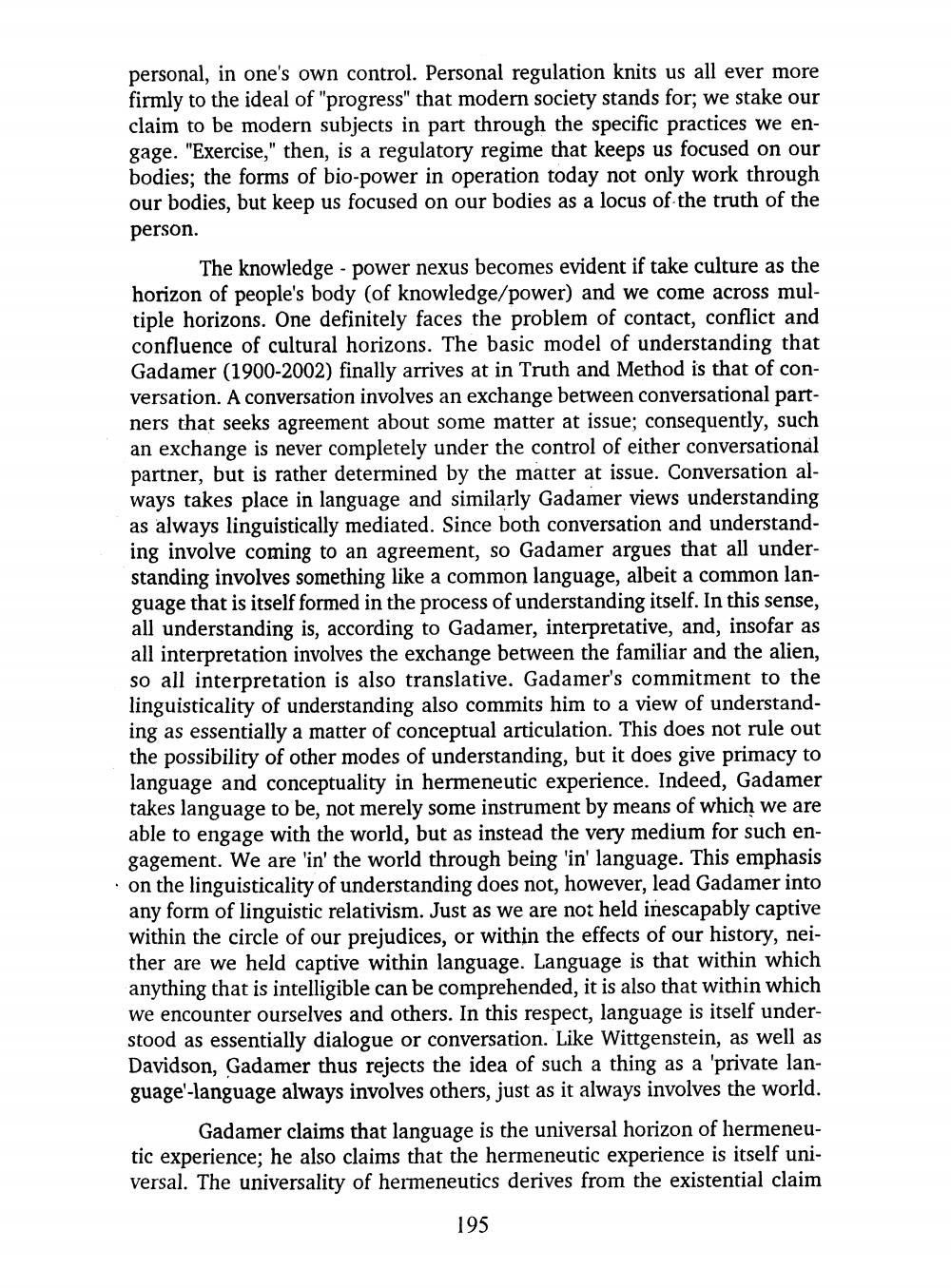________________
personal, in one's own control. Personal regulation knits us all ever more firmly to the ideal of "progress" that modern society stands for; we stake our claim to be modern subjects in part through the specific practices we engage. "Exercise," then, is a regulatory regime that keeps us focused on our bodies; the forms of bio-power in operation today not only work through our bodies, but keep us focused on our bodies as a locus of the truth of the person.
The knowledge - power nexus becomes evident if take culture as the horizon of people's body (of knowledge/power) and we come across multiple horizons. One definitely faces the problem of contact, conflict and confluence of cultural horizons. The basic model of understanding that Gadamer (1900-2002) finally arrives at in Truth and Method is that of conversation. A conversation involves an exchange between conversational partners that seeks agreement about some matter at issue; consequently, such an exchange is never completely under the control of either conversational partner, but is rather determined by the matter at issue. Conversation always takes place in language and similarly Gadamer views understanding as always linguistically mediated. Since both conversation and understanding involve coming to an agreement, so Gadamer argues that all understanding involves something like a common language, albeit a common language that is itself formed in the process of understanding itself. In this sense, all understanding is, according to Gadamer, interpretative, and, insofar as all interpretation involves the exchange between the familiar and the alien, so all interpretation is also translative. Gadamer's commitment to the linguisticality of understanding also commits him to a view of understanding as essentially a matter of conceptual articulation. This does not rule out the possibility of other modes of understanding, but it does give primacy to language and conceptuality in hermeneutic experience. Indeed, Gadamer takes language to be, not merely some instrument by means of which we are able to engage with the world, but as instead the very medium for such engagement. We are 'in' the world through being 'in' language. This emphasis on the linguisticality of understanding does not, however, lead Gadamer into any form of linguistic relativism. Just as we are not held inescapably captive within the circle of our prejudices, or within the effects of our history, neither are we held captive within language. Language is that within which anything that is intelligible can be comprehended, it is also that within which we encounter ourselves and others. In this respect, language is itself understood as essentially dialogue or conversation. Like Wittgenstein, as well as Davidson, Gadamer thus rejects the idea of such a thing as a 'private language'-language always involves others, just as it always involves the world.
Gadamer claims that language is the universal horizon of hermeneutic experience; he also claims that the hermeneutic experience is itself universal. The universality of hermeneutics derives from the existential claim
195




